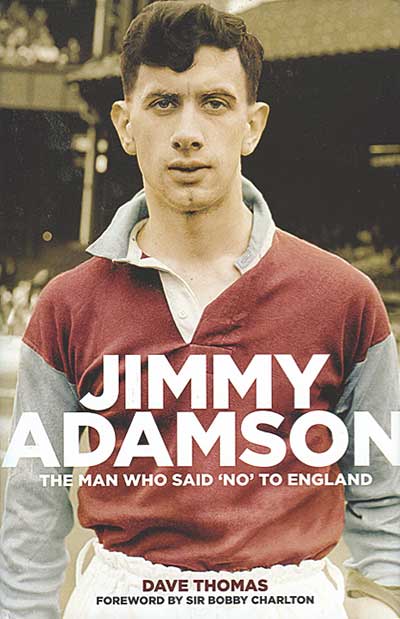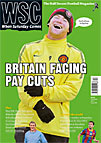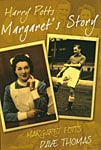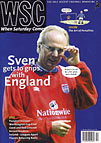Search: 'Harry Potts'
Stories
 The man who said no to England
The man who said no to England
by Dave Thomas
Pitch Publishing, £17.99
Reviewed by Harry Pearson
From WSC 335 January 2015
Jimmy Adamson was born in Laburnum Terrace, Ashington, a few doors along from Bobby and Jack Charlton. All three would be Footballers of the Year. They shared character traits too; Adamson had Big Jack’s abrasiveness and Bobby’s tendency to aloofness. Unfortunately he didn’t have the charm of the former, or the diplomatic skills of the latter. The result, as lifelong Burnley fan Dave Thomas relates, in this illuminating and well told biography, was a career that promised much but ended in frustration.
Adamson’s childhood was brutally hard. His father abandoned the family at an early stage; his mother’s struggle to raise her children on her own ended in depression and suicide. Later he would suffer the horror of having his two children predecease him.
Whisked away to Burnley as a teenager after the north-east clubs took their traditional path of rejecting a local star, Adamson started as a winger but soon switched to half-back. Intelligent, tough, with a rare ability to pick a pass, he quickly became one of the stars of the team that took the League title in 1960.
As a coach Adamson was ahead of his time, a thinker and a tactician. After serving as assistant to Walter Winterbottom at the 1962 World Cup, he was offered the England manager’s job but turned it down to stay on at Turf Moor as player and eventually – after some backstage shenanigans to oust incumbent Harry Potts – the manager.
From Potts, Adamson inherited a side rich in young talent, labelling it “the team of the Seventies”. Unfortunately the economics of football had changed since his playing days and small-town clubs such as Burnley now struggled to compete with the big-city sides. The resulting financial pressures brought Adamson into conflict with Burnley chairman Bob Lord. Sitting in the head office of his butchery business in front of a large portrait of Winston Churchill, the man Arthur Hopcraft called “the Khrushchev of Burnley” was a self-made autocrat straight out of satire. (Indeed, one of the many entertaining nuggets the author has dug out is the fact that Brian Glanville wrote a sketch about Lord for That Was The Week That Was. Sadly it was never performed.)
As “the team of the Seventies” were dismantled to pay for ground improvements and fend off debt (and to line Lord’s pockets, it is alleged) the once close relationship between the two men descended into acrimony. “I wanted to build a team, the chairman wanted to build a stadium,” Adamson famously remarked after the split finally came.
Away from Turf Moor, Adamson never really settled. A spell at the side he had wanted to play for as a boy, Sunderland, ended after a couple of inconclusive seasons, the appointment at Elland Road in 1978 was fraught with problems from the off. By then alcohol seems to have blunted Adamson’s talent and exacerbated his prickliness. After Leeds he did not work in football again.
Adamson continued to live in Burnley, but was so bitter about his treatment by Lord he refused to go and watch even after his nemesis had departed. Thankfully he eventually made his peace with the club he had served so well. He received a warm and heartfelt ovation from Clarets fans on his return to Turf Moor. It gave some semblance of a happy ending to a life marred by rancour and loss.
 Dear WSC
Dear WSC
I would like to ask my fellow readers if their clubs have something called “The Nardiello Factor”. The Nardiello Factor is a phenomenon where a striker’s popularity is based in a large part on the exotic nature of his name. At Barnsley we have seen no finer example of this than in recent months with the arrival of Jerónimo Morales Neumann. My fellow Tykes have been beside themselves at the thought of this player, and have wondered how Mark Robins can possibly limit him to just warming the bench. This opinion seems based on nothing more than the fact that he has a name that would be good to shout out when (if) he scores. Our Jerónimo accordingly scores a Nardiello Factor rating of nine (the maximum score is ten). Contrast this with Chris Woods, our loanee from West Brom. He scores a paltry NarFac rating of four. Were he to slightly change his name to Christiano Woodaldo he would up his NarFac rating to eight but, alas, this is not to my knowledge due for consideration. As a consequence the support from the terraces has been a little limited to date. Liam Dickinson scores a NarFac rating of one, though I am willing to concede that, even if he changed his name to Galileo Figaro Magnifico, he’d do well to register a NarFac rating of five. His yellow boots have had a negative impact.
Ian Marsden, Belper
 by Margaret Potts & Dave Thomas
by Margaret Potts & Dave Thomas
SportsBooks, £17.99
Reviewed by Alan Tomlinson
From WSC 247 September 2007
Harry Potts played for and managed Burnley in some of their most successful periods from the late 1940s to the late 1960s, and again in some less successful times in the 1970s. This book combines the memoir of his wife, Margaret, with the broader context portrayed by writer Dave Thomas. It is an engaging book, a richly illustrated portrait of a time and culture a million miles away from the excesses of the post-1992 English football elite.
 Barry Kilby is a majority shareholder of Burnley FC and has revitalised the club. Jeremy Wilson endeavours to find out who is the man behind all the success
Barry Kilby is a majority shareholder of Burnley FC and has revitalised the club. Jeremy Wilson endeavours to find out who is the man behind all the success
Distinguishing Features Tall, with a crop of red hair, Barry stands out in a crowd. In the early days of his reign he could be easily spotted from afar ensconced in a full-length 100 per cent llama hair coat. However, following merciless piss-taking of said garment on a supporters’ group website (Barry is known to check out a variety of sites on a regular basis) it failed to make another appearance on the Turf.